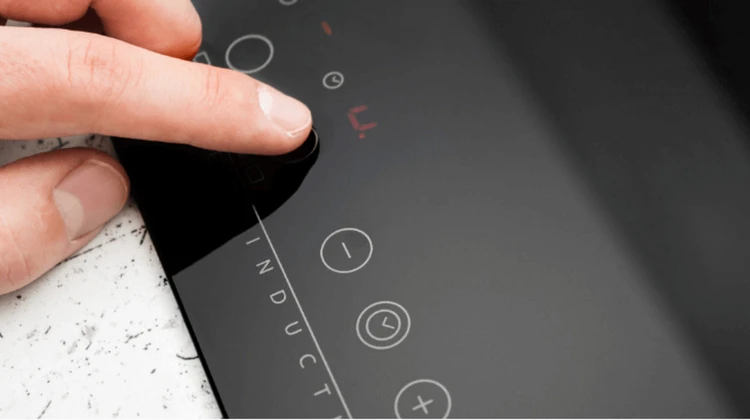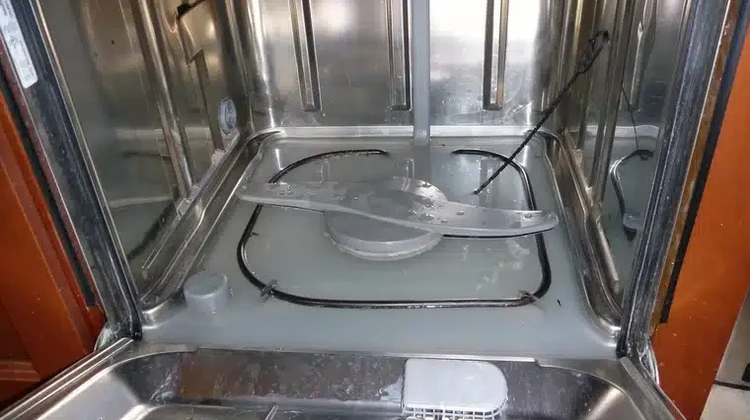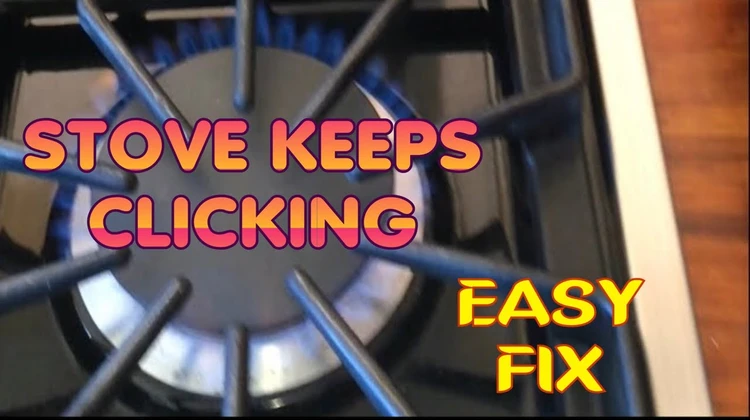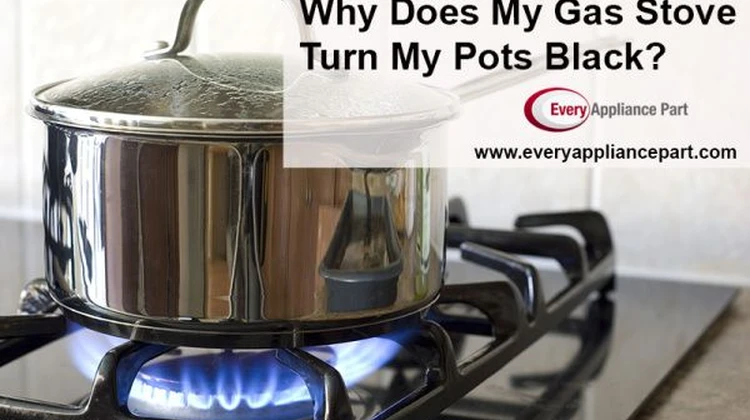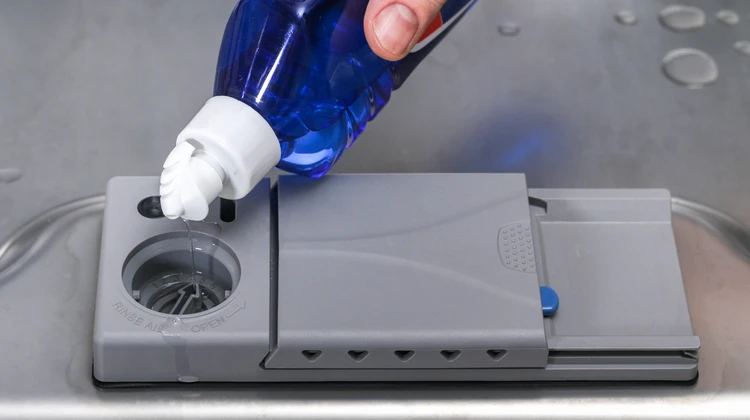Induction cooktops are increasingly popular for their efficiency and precision. However, homeowners, renters, and kitchen enthusiasts often face the frustrating issue of these cooktops turning off unexpectedly.
Disclaimer: As an Amazon Associate, I earn commission from qualifying purchases.
According to Statista, induction cooktops are among the fastest-growing kitchen appliances, with a projected market growth of 8% annually. As someone with over a decade of experience in the kitchen appliance industry, I’ve seen firsthand how crucial it is to understand the underlying causes of this common issue.
What is an Induction Cooktop and How Does It Work?
Induction cooktops operate differently from traditional gas and electric cooktops. Instead of using a flame or heating element, induction cooktops use electromagnetic induction to heat the cookware directly. This technology is more energy-efficient and provides faster heating times. According to Consumer Reports, induction cooktops are up to 70% more efficient than conventional electric cooktops. The cooktop generates a magnetic field that interacts with the cookware, creating heat directly within the pot or pan. This direct heating method ensures that the cooktop itself stays relatively cool, reducing the risk of burns.
Common Reasons Why Induction Cooktops Turn Off Unexpectedly
Several factors can cause an induction cooktop to turn off unexpectedly. The most common reasons include overheating, incorrect cookware, and electrical issues. Based on my professional experience, I’ve encountered numerous cases where these issues have led to frequent shut-offs. Industry publications often highlight these problems, emphasizing the need for regular maintenance and proper usage.
Overheating: A Common Culprit
Overheating is one of the primary reasons why induction cooktops turn off. These appliances are equipped with safety features that trigger an automatic shut-off when the temperature exceeds safe levels. According to official documentation from leading manufacturers like Bosch and Whirlpool, these safety protocols are designed to prevent heat-related damage and ensure user safety. When the cooktop detects excessive heat, it will shut down to cool off, preventing potential hazards.
The Importance of Compatible Cookware
Using the correct cookware is crucial for the proper functioning of induction cooktops. Induction-compatible cookware must be made of magnetic materials like cast iron or stainless steel. Non-magnetic materials, such as aluminum or copper, will not work effectively. Technical specifications from cookware manufacturers like All-Clad and Le Creuset recommend using cookware that is specifically designed for induction cooking. This ensures optimal performance and prevents the cooktop from turning off due to inadequate heat transfer.
Electrical Issues and Power Supply
Electrical issues can also cause induction cooktops to turn off unexpectedly. These problems can range from faulty wiring to power supply inconsistencies. To troubleshoot these issues, follow these steps:
- Check the Power Cord: Ensure the power cord is securely connected to the outlet.
- Inspect the Circuit Breaker: Verify that the circuit breaker hasn’t tripped. If it has, reset it.
- Test the Outlet: Use a multimeter to check the voltage at the outlet. It should be within the range specified by the manufacturer.
- Check for Loose Connections: Inspect the internal wiring for any loose connections or damaged wires.
These steps can help identify and resolve common electrical issues. Always refer to electrical codes and safety guidelines when handling electrical components.
Cleaning and Maintenance Tips
Regular cleaning and maintenance can prevent many common issues with induction cooktops. Here are some tips:
- Clean the Surface: Use a non-abrasive cleaner and a soft cloth to wipe down the cooktop surface after each use.
- Avoid Harsh Chemicals: Avoid using harsh chemicals or steel wool, as they can damage the cooktop.
- Check for Spills: Ensure that no liquid or food particles are left on the cooktop, as they can interfere with the heating process.
- Inspect the Control Panel: Regularly inspect the control panel for any signs of wear or damage.
Identifying and Fixing Overheating Issues
To identify and fix overheating issues, follow these steps:
- Check the Temperature Sensor: Ensure the temperature sensor is functioning correctly. A faulty sensor can cause the cooktop to overheat.
- Inspect the Ventilation: Ensure proper ventilation around the cooktop. Poor ventilation can lead to overheating.
- Use Appropriate Cookware: Use cookware that is compatible with induction cooking and has a flat bottom for even heat distribution.
- Monitor Cooking Temperatures: Avoid using extremely high temperatures for extended periods.
These steps can help prevent overheating and ensure the cooktop operates efficiently.
Ensuring Proper Ventilation
Proper ventilation is essential for preventing overheating in induction cooktops. According to industry standards, kitchens should have adequate ventilation systems to remove heat and moisture. Professional experience in kitchen design emphasizes the importance of range hoods and exhaust fans. Ensure that the cooktop is not placed near heat-generating appliances and that there is sufficient airflow around it.
Addressing Electrical Problems
Electrical problems can significantly impact the performance of induction cooktops. Common issues include:
- Frequent Power Interruptions: This can be caused by loose connections or faulty wiring.
- Unusual Noises: Buzzing or humming sounds may indicate electrical issues.
- Inconsistent Heating: If the cooktop heats unevenly, it could be due to electrical problems.
To address these issues, use electrical troubleshooting tools like multimeters and voltage testers. Always follow electrical safety guidelines and consult industry publications for best practices.
Best Practices for Using Induction Cooktops
To ensure the longevity and optimal performance of induction cooktops, follow these best practices:
- Use Compatible Cookware: Always use cookware made of magnetic materials.
- Avoid Overheating: Monitor cooking temperatures and avoid prolonged high-heat cooking.
- Regular Cleaning: Clean the cooktop surface regularly to prevent buildup.
- Proper Ventilation: Ensure adequate ventilation around the cooktop.
- Electrical Maintenance: Regularly inspect electrical components and address any issues promptly.
When to Call a Professional
If troubleshooting steps do not resolve the issue, it may be time to call a professional. Signs that indicate the need for professional help include:
- Persistent Overheating: If the cooktop continues to overheat despite following all troubleshooting steps.
- Electrical Faults: If there are frequent power interruptions or unusual noises.
- Control Panel Issues: If the control panel is malfunctioning or unresponsive.
Professional services can be costly, with prices ranging from $100 to $300 depending on the issue. Always refer to industry publications for professional standards and potential costs.
Frequently Asked Questions (FAQs)
Q1: Why does my induction cooktop keep turning off while cooking?
A1: This could be due to overheating, incorrect cookware, or electrical issues. Overheating is often caused by poor ventilation or using oversized cookware. Incorrect cookware can lead to inadequate heat transfer, while electrical issues can result from faulty wiring or power supply inconsistencies. Refer to sections on overheating, cookware compatibility, and electrical issues for detailed explanations.
Q2: What type of cookware is compatible with induction cooktops?
A2: Induction cooktops require cookware made of magnetic materials like cast iron or stainless steel. These materials allow the magnetic field to create heat directly within the cookware. Non-magnetic materials like aluminum or copper will not work effectively. Refer to the section on compatible cookware for more details.
Q3: How can I prevent my induction cooktop from overheating?
A3: Ensure proper ventilation around the cooktop and avoid using oversized cookware. Proper ventilation helps remove excess heat, while using the correct size of cookware ensures even heat distribution. Regular cleaning and maintenance can also prevent overheating. Refer to sections on overheating and ventilation for more tips.
Q4: What are the signs of electrical problems with my induction cooktop?
A4: Common signs include frequent power interruptions and unusual noises like buzzing or humming. These issues can be caused by loose connections, faulty wiring, or a malfunctioning control panel. Refer to the section on electrical problems for a detailed comparison and solutions.
Q5: When should I call a professional to fix my induction cooktop?
A5: If troubleshooting steps do not resolve the issue, it may be time to call a professional. Persistent overheating, electrical faults, and control panel issues are signs that professional help is needed. Refer to the section on calling a professional for more information on when and why to seek expert assistance.
Q6: Can I use aluminum cookware on an induction cooktop?
A6: Aluminum cookware is not compatible with induction cooktops because it is not magnetic. Induction cooktops require magnetic materials like cast iron or stainless steel to function properly. Using non-magnetic cookware can lead to inadequate heat transfer and poor cooking performance.
Q7: How often should I clean my induction cooktop?
A7: It is recommended to clean your induction cooktop after each use to prevent buildup and ensure optimal performance. Use a non-abrasive cleaner and a soft cloth to wipe down the surface. Regular cleaning helps maintain the cooktop’s efficiency and longevity.
Q8: What should I do if my induction cooktop makes a buzzing noise?
A8: A buzzing noise can indicate electrical issues or a malfunctioning control panel. Start by checking the power cord and outlet for any loose connections. If the noise persists, it may be necessary to call a professional for further inspection and repair.
Q9: Can I use a range hood with my induction cooktop?
A9: Yes, using a range hood with your induction cooktop is recommended to ensure proper ventilation. Adequate ventilation helps remove excess heat and moisture, preventing overheating and improving the cooktop’s performance. Make sure the range hood is properly installed and maintained.
Q10: How can I test if my induction cooktop is receiving the correct voltage?
A10: To test the voltage, use a multimeter to check the voltage at the outlet. The voltage should be within the range specified by the manufacturer, usually between 220V and 240V. If the voltage is outside this range, it could indicate electrical issues that need to be addressed.
Conclusion
Induction cooktops offer numerous benefits, including energy efficiency and precise temperature control. However, they can be prone to turning off unexpectedly due to overheating, incorrect cookware, or electrical issues. By understanding these common causes and following the troubleshooting and maintenance tips outlined in this blog, homeowners and kitchen enthusiasts can ensure the longevity and optimal performance of their induction cooktops. Always remember to seek professional help for complex issues to ensure safety and efficiency.
This blog aims to provide actionable, expert-backed solutions to common induction cooktop problems, reinforcing the importance of proper maintenance and troubleshooting. It is crucial to note that while these tips can help resolve many issues, professional assistance may be necessary for more complex problems. Always prioritize safety and follow industry guidelines when dealing with kitchen appliances.

